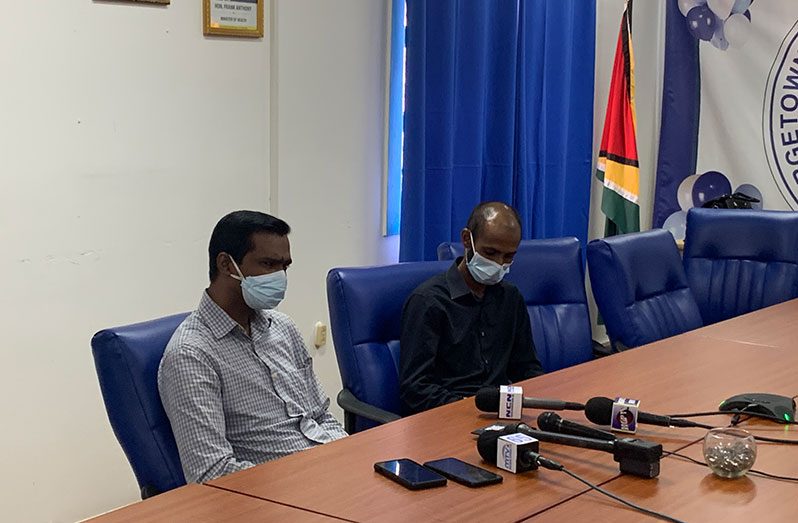— doctors aiming to do more screening to target early detection
By Shamar Meusa
THE leading cause of kidney failure in Guyana is diabetes, according to Dr Hemchand Barran, a nephrologist attached to the Georgetown Public Hospital Corporation (GPHC).
Dr. Barran made this disclosure as he addressed members of the media on Friday as part of activities for kidney awareness month.
“The leading cause for kidney failure is diabetes… 70 per cent of our patients approximately end up with kidney disease and about half of those end up dialysis because of diabetes,” he said.
According to the nephrologist, in Guyana, the age category which has been mostly affected with kidney failure ranges from persons 30 to 50 years and from 45 to 65 years.
He also noted that while it may appear that women and men are equally affected, there may be more men affected than women.
Common signs and symptoms of kidney failure include swelling in the feet, abdomen and face even as some persons may observe decreased urine output over a period of time.
As it relates to advanced kidney disease, Dr Barran said that symptoms can range from decreased appetite, loss of weight, nausea and more. With that, he noted that it is sometimes difficult to diagnose as kidney disease can go unnoticed in the early stages.
Giving some insight into the situation in Guyana, he revealed that as of December, there were about 200 patients on dialysis in outpatient settings while on average at the hospital in an inpatient setting, there are about 10 to 15 patients.
All of these patients, he said, are in need of a kidney transplant and while the transplant is not directly an emergency, there are cases where emergency dialysis is necessary as patients await having a transplant done.
Meanwhile, Dr. Bolan Persaud of the transplant and Vascular Surgery Department stated that there have been three instances where kidney disease reoccurred in patients who had their transplants done.
CARE IT
“We always try to explain this to the transplant patient that yes, despite transplant is the best form of treatment for kidney failure, it gives you better quality of life, this kidney can last one day, it can last one week, it can last one year, five years, 10 years all based on how you take care of it,” he said.
Persaud went on to say that doctors try to ensure that patients who have received transplants make certain life changes.
“We don’t want to have someone who is sacrificing their life to donate a kidney to them and they would have exposed themselves to these risk factors again that probably could have led to the kidney failure that could affect that transplant,” he said.
On this note, Dr Persaud stated that with the recently passed Organ Transplant Bill, practitioners are working on having systems in place, along with getting a transplant laboratory up and running to facilitate cross-matching.
They are further working on acquiring the necessary equipment to conduct testing and more.
In terms of the human resources, he said that Guyana has the support from professionals overseas who are willing to train and further have persons travel to be trained and return to Guyana.
Dr Barran noted that while the Ministry of Health has an ongoing diabetes programme, one of the objectives is to do more screening for diabetes. As such, he noted that they are also hoping to target detection of kidney disease earlier and deal with it in its earlier stage, rather than having patients show up when they are in need of dialysis.
The nephrologist went on to say that persons should do regular check ups and if they are known to be diabetic it is recommended that they have more frequent checkups.



.jpg)









